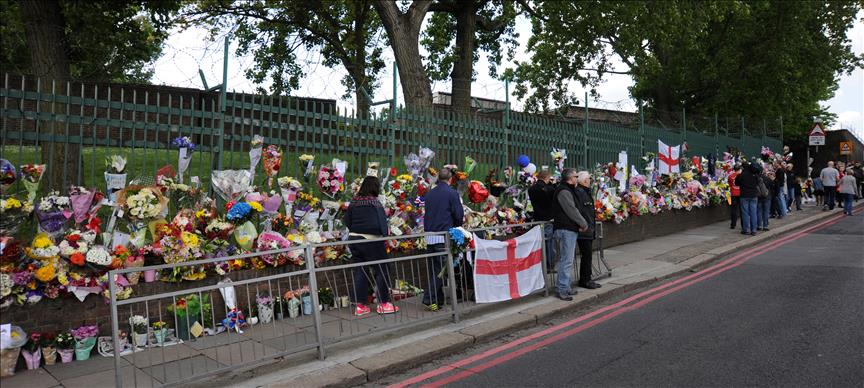
LONDON
A report into the killing of soldier Lee Rigby in London in 2013 has criticised British intelligence agencies over their monitoring of the killers before the street attack.
The criticisms came in a report published on Tuesday by the Intelligence and Security Committee into the killing of Rigby by Michael Adebolajo, 29, and Michael Adebowale, 22, who ran him over with a car before hacking him to death outside Woolwich Barracks in London on May 22 last year.
The report said Adebolajo had been monitored by MI5 ahead of the attack.
An online exchange on December 2012 between Adebowale and an overseas extremist showed he "clearly expressed his desire to murder a soldier because of UK military action in Iraq and Afghanistan".
British lawmaker Sir Malcolm Rifkind, who presented the report, said: "This was highly significant. Had MI5 had access to this exchange at the time, Adebowale would have become a top priority. There is then a significant possibility that MI5 would have been able to prevent the attack."
MI6, the British overseas intelligence agency, also came in for criticism over its "inadequate" response to Adebolajo's arrest in Kenya in 2010.
- 'Significant difference'
Rifkind said: "They [MI6] failed to investigate his [Adebolajo] allegations of mistreatment; and neither they nor MI5 accorded him sufficient priority upon his return to the UK.
"Given the current situation in Syria and Iraq, we have very significant concerns in this regard."
Criticizing the activities of the intelligence agencies, the report said: “There were errors in these operations, where processes were not followed, decisions not recorded, or delays encountered.”
The committee inquiry was set up to investigate the role of intelligence agencies who had put the pair under surveillance.
The report says the two men appeared between them in seven different agency investigations but were for the most part regarded as low-level subjects of interest.
"Adebolajo was a high priority for MI5 during two operations: they put significant effort into investigating him and employed a broad range of intrusive techniques. None of these revealed any evidence of attack planning," it said.
Adebolajo and Adebowale were sentenced this year for the killing, for a life term and 45 years respectively.
However, the report went on to say that the errors, taken individually, were not enough to have made a significant difference and none of the investigations including adopting "intrusive techniques" revealed any evidence of a planned attack.
It concluded the agencies could not have prevented Rigby's murder.
- 'Serious concern'
The committee also criticised a U.S.-based Internet service provider for not providing information about the exchange between the two men when they discussed their plans.
Rifkind said: "If MI5 had sought information - under a warrant - before the attack, the company might not have responded. They appear to accept no responsibility for the services they provide.
"This is of very serious concern: the capability of the agencies to access the communications of their targets is essential to their ability to detect and prevent terrorist threats in the UK."
The report drew attention to the Preventing Violent Extremism Programme, saying the number of British men and women travelling to Syria and Iraq to engage in fighting indicated that the "government’s counter-terrorism programmes are not working".
It said that the Prevent program should be given priority, adding: "We strongly urge our colleagues on the Home Affairs or Communities Select Committees to consider this issue as a matter of urgency, given the threat our country currently faces."
- 'Tortured and harassed'
According to the U.K. daily The Guardian, Adebolajo and Adebowale, both converts to Islam, had been known to the security services for up to eight years before the attack.
Several witnesses said Adebolajo alleged there was British complicity in his ill-treatment after he was arrested in Kenya in 2010.
Abu Nusaybah, a friend of Adebolajo, later claimed on television Adebolajo had been tortured in Kenya and harassed by MI5 agents, who then asked him to spy for the agency on his return to Britain.
Announcing the report in a June this year Prime Minister David Cameron promised it would consider "how the suspects were radicalized, what we know about them, whether any more could have been done to stop them and the lessons to learn".
Anadolu Agency website contains only a portion of the news stories offered to subscribers in the AA News Broadcasting System (HAS), and in summarized form. Please contact us for subscription options.




